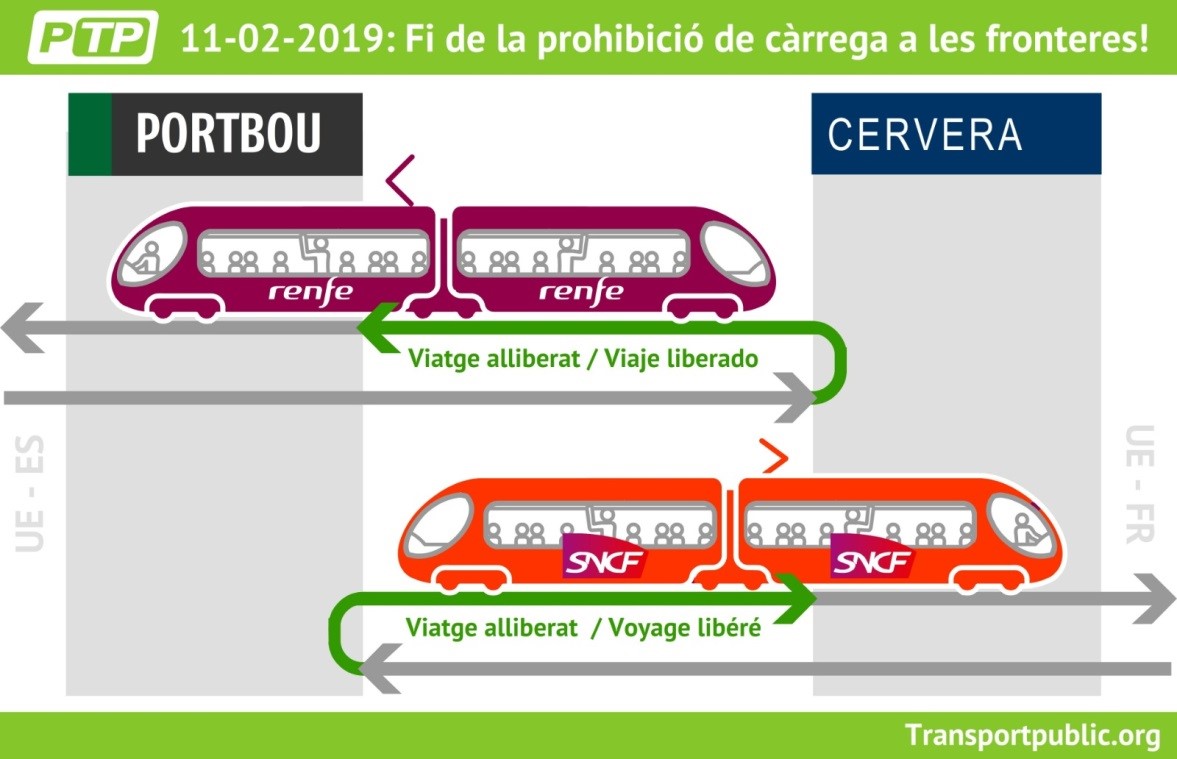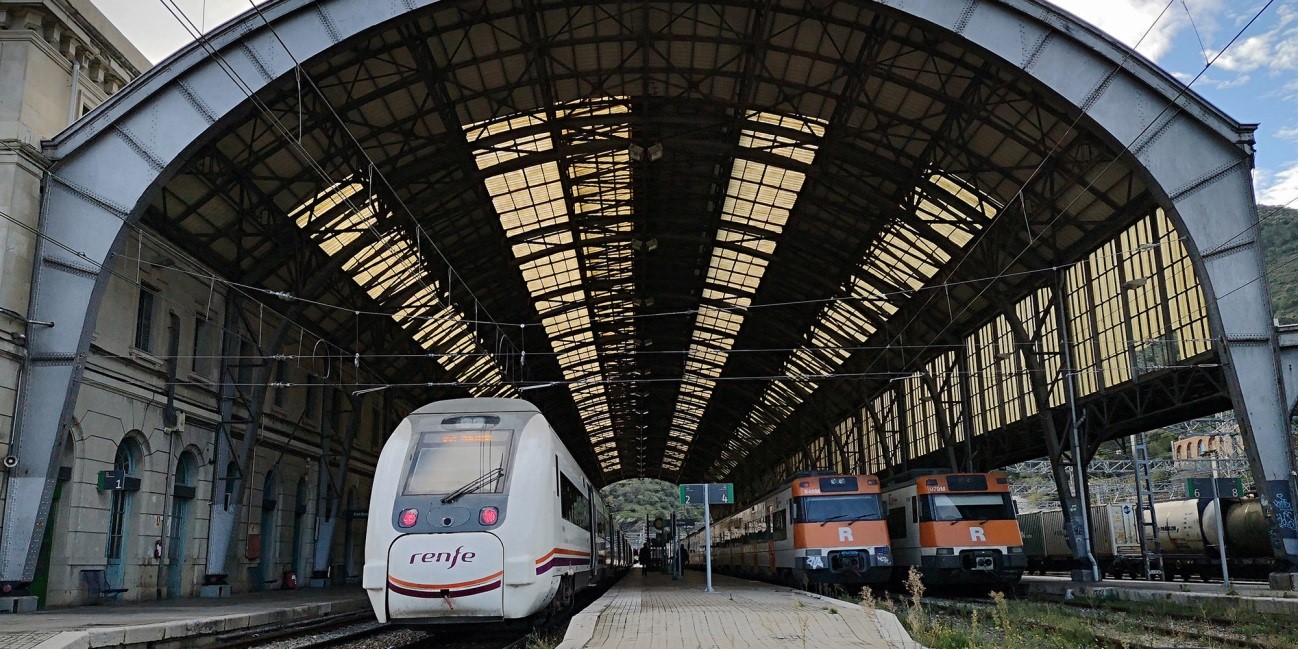 From February 11st, Spanish and French trains will be able to carry passengers, in Portbou and Cerbère, when coming back to their countries, in direction of Barcelona and Perpignan/Narbonne. This is a historical decision that breaks more than 100 years of blockage because of the absurd traffic bans, and normalizes the border links of public transport between Catalonia and Occitania. Moreover, some of the 14 daily relations at the Portbou-Cerbère border are also improved by reducing the connection time. On the other hand, even better are the results of the improved connections in the other French-Spanish border at La Tour-de-Carol, between SNCF and Renfe, where 6 out of 7 trains have now a good correspondence.
From February 11st, Spanish and French trains will be able to carry passengers, in Portbou and Cerbère, when coming back to their countries, in direction of Barcelona and Perpignan/Narbonne. This is a historical decision that breaks more than 100 years of blockage because of the absurd traffic bans, and normalizes the border links of public transport between Catalonia and Occitania. Moreover, some of the 14 daily relations at the Portbou-Cerbère border are also improved by reducing the connection time. On the other hand, even better are the results of the improved connections in the other French-Spanish border at La Tour-de-Carol, between SNCF and Renfe, where 6 out of 7 trains have now a good correspondence.
But this historical step is just a beginning. Next objectives of our associations are to set up a proper cross-border railway scheme in the area of Catalonia and Occitania. This area is one of the few European regions in which this cross-border railway scheme has not still been set up.
The history of the bans
Unbelievably, that restriction -which has an ancestral origin- was being maintained despite the incorporation of Spain into the European Union (1986) and after Schengen agreements (1991). This situation was not logical in a context of maximum collaboration between Renfe and the SNCF, showed in the new high-speed line Barcelona – Figueres – Perpignan (2010), where not any restrictions exist, but a common fare scheme.
The repeal of this ban is one of the claims that public transport defenders associations, the Cross-border Alliance Pyrenees – Mediterranean, have been done from 2010. The constant social mobilizations in favour of this abrogation and the support of the regional governments have been a key factor to allowing the free movement of passengers by train crossing the border at Portbou and Cerbère. Associations have been closely working together to claim improvements in the pro-train events in Portbou (2010), Cotlliure (2015) and Llançà (2018), but also through issuing rail cross-border guides, and getting the support of the European Passenger Federation ( EPF) and several political international initiatives.
But not all is done, it is still necessary to improve the coordination of Renfe and SNCF timetables reduce waiting times at border stations and as well to guarantee the needed services and links that ensure a go and come back trip in one day between Girona and Perpignan, besides other destinations.
The pressure of these entities over 9 years and the dialogue with regional governments has been a key factor in allowing the free movement of passengers between Portbou and Cerbère.

The European Passenger Federation (EPF), the Fédération Nationale des Associations des Usagers des Transport (FNAUT), the Association des Usagers du Train Perpignan-Portbou, the Association for the Promotion of Public Transport (PTP) and the Defend the Train of the Empordà want to thank Renfe, SNCF and the regional administrations involved in this difficult bureaucratic procedure that has allowed to repeal this historical ban over international traffics.
Sustainable and safe mobility must also overcome borders.
Pau Noy
PTP Barcelona


 Stay informed!
Stay informed!